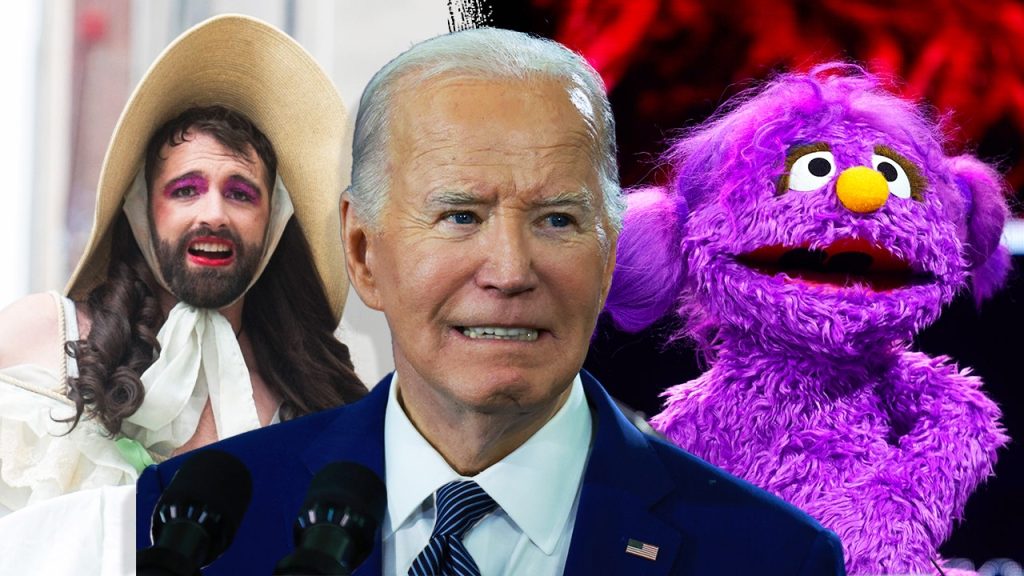Senator Rand Paul’s 2024 Festivus Waste Report shines a harsh light on what he deems frivolous and excessive government spending under the Biden-Harris administration, totaling over $1 trillion. The report meticulously details a litany of expenditures, ranging from artistic endeavors to scientific research, which Senator Paul argues represent a misallocation of taxpayer funds. A central theme of the report is the perceived disconnect between these expenditures and the financial struggles faced by ordinary Americans. Paul contrasts the government’s funding of seemingly non-essential projects with the everyday citizen’s struggle to meet basic needs, creating a narrative of government extravagance against a backdrop of public hardship.
The report highlights several specific examples of what Senator Paul considers wasteful spending. A $10,000 grant to “Beards on Ice,” a drag show centered on climate change, is presented as a particularly egregious example. The report also questions the allocation of $20 million to “Ahlan Simsim,” an Iraqi spin-off of Sesame Street, intended to promote inclusivity and mutual respect. Paul casts doubt on the necessity of such international initiatives, particularly in light of domestic economic concerns. Furthermore, the report cites a $1.5 million expenditure on research involving kittens and motion sickness, emphasizing the invasive nature of the experiments, which involved spinning kittens on a table and drilling holes into their skulls. This example serves to illustrate, in Paul’s view, the government’s willingness to fund research of questionable ethicality and practical application.
Further examples of purportedly wasteful spending include a $400,000 grant to New York University to study the relationship between loneliness and cocaine use in rats, and a $12 million allocation for a pickleball complex in Las Vegas. Senator Paul questions the value of these investments, particularly the former, which he sarcastically suggests confirms the intuitive notion that social isolation and starvation can lead to increased drug use. He frames this research as a self-evident waste of taxpayer money. The construction of the pickleball complex is presented as another instance of misplaced priorities, suggesting that government funds could be better allocated to address more pressing societal needs.
The report also takes aim at the State Department’s $3 million investment in “Girl-Centered Climate Action” in Brazil, a program designed to empower young women as climate leaders. Senator Paul critiques this expenditure as another example of the government prioritizing international initiatives over domestic concerns. He also criticizes the Biden administration for allocating $10 billion to maintain and furnish largely empty government buildings, contrasting this expense with the financial struggles faced by many Americans to afford housing. This juxtaposition serves to amplify the report’s central theme of government excess versus public need.
The report further scrutinizes the Department of Energy’s $15.5 billion investment in the electric vehicle industry, questioning the government’s role in promoting a specific sector of the economy. It also highlights a seemingly less significant expenditure, a $388,000 grant for “Magic in the United States,” a podcast exploring the evolution of magical beliefs and practices. This example, while smaller in monetary value, serves to further illustrate the breadth of government spending that Senator Paul considers wasteful. The diversity of examples, ranging from scientific research to cultural projects, underscores the report’s argument that government spending is excessively broad and lacks focus on essential priorities.
Finally, the report criticizes the $2.1 million allocated to support Paraguay’s border security, framing this expenditure as a contradiction of the “America First” principle. Senator Paul argues that prioritizing another country’s border security while facing domestic challenges is a misallocation of resources. This example, like many others in the report, serves to portray the Biden administration as neglecting domestic needs in favor of international initiatives or projects that, in Senator Paul’s estimation, lack clear public benefit. The overall narrative of the report paints a picture of government wastefulness and misplaced priorities, urging a more fiscally responsible approach to spending taxpayer dollars. The report concludes by implicitly calling for greater scrutiny of government expenditures and a re-evaluation of spending priorities.

